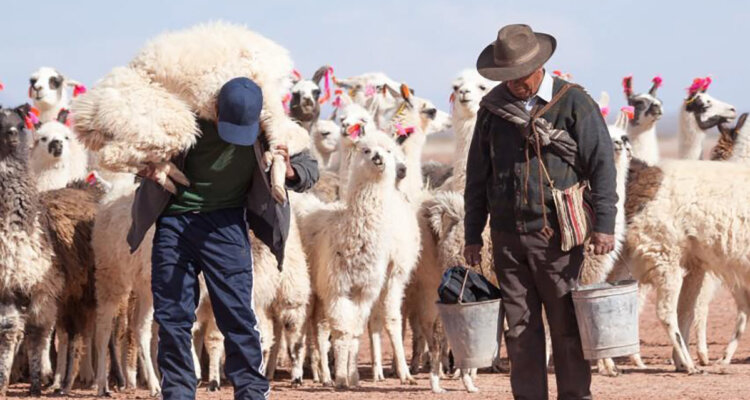Virgino and Sisa live what most people would consider a very simple life. They raise and care for Lamas in the Bolivian highlands keeping the traditions of their Quechua people alive. They don’t have electricity or a cell phone. No hot water or even running water, for that matter. But the earth has been mostly good to them, until now. And with climate change and technology encroaching on their lives, they find themselves at a crossroads. A reality explored in Alejandro Loayza Grisi’s captivating feature debut, “Utama,” which debuted at the 2022 Sundance Film Festival.
Portrayed by non-traditional actors, José Calcina and Luisa Quispe, respectively, Virgino and Sisa are struggling in their later years. It has not rained in almost a year and the consequences are dire. Sisa is forced to walk miles to find the water they are then forced to ration. Virgino can barely complete his daily walks with their herd of Lamas as suitable grazing pastures grow farther and farther away from their home. He’s also pestered by a lingering cough, which he tries to hide, with little success, from Sisa. Despite their troubles, they still have genuine affection for each other and embrace their tranquil, solitary existence. That peace is broken by the arrival Clever (professional actor Santos Choque), a grandson whose good intentions don’t sit well with Virgino whatsoever.

Like many other Quechua, Clever is hoping to bring his grandparents closer to the city for a better life. He watches as his beloved grandmother suffers under the strain of keeping them fed and soon realizes his grandfather is hiding a grave illness from her. Virgino, on the other hand, refuses to leave their homestead, believing this is a plot of some kind from Clever’s father. Stubbornness is a virtue in this family, and Clever stays on, helping Virgino with the Lamas while hoping to eventually convince him to come to his senses.
Foremost known as a still photographer, Grisi was inspired by the stories of the indigenous people he met traveling all over Bolivia. As one would expect, his own cinematic eye and the talents of celebrated Brazilian cinematographer Barbara Alvarez combine to fashion some absolutely stunning imagery across the highlands. What is more impressive is how, with decidedly sparse dialogue, Grisi eloquently depicts the life of an elderly couple who truly love each other and are fiercely loyal despite their differences.
Admittedly, “Utama” is a simple story, but one that packs an emotional punch without endless exposition or symbolism. The world is constantly changing and not everyone is willing to leave their old life behind. And Grisi’s willingness to share that naked truth and evade the pitfalls of a decidedly happy ending might be the film’s most impressive feat of all. B+


